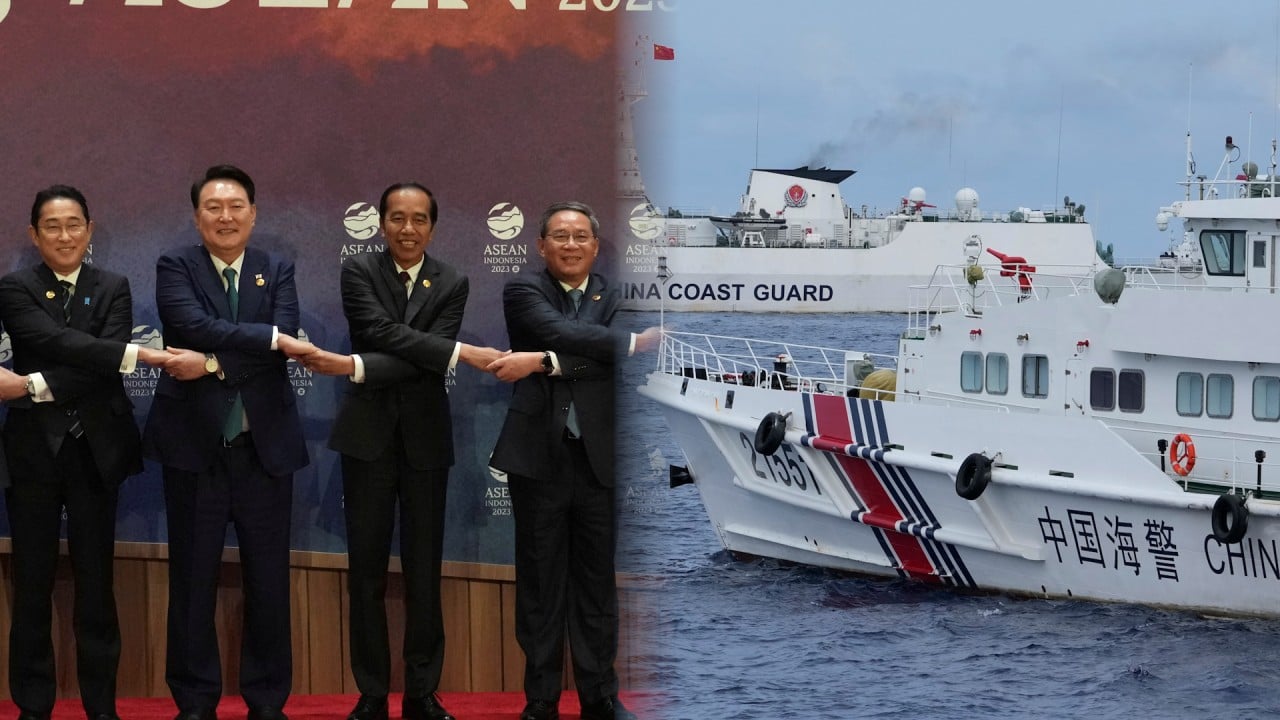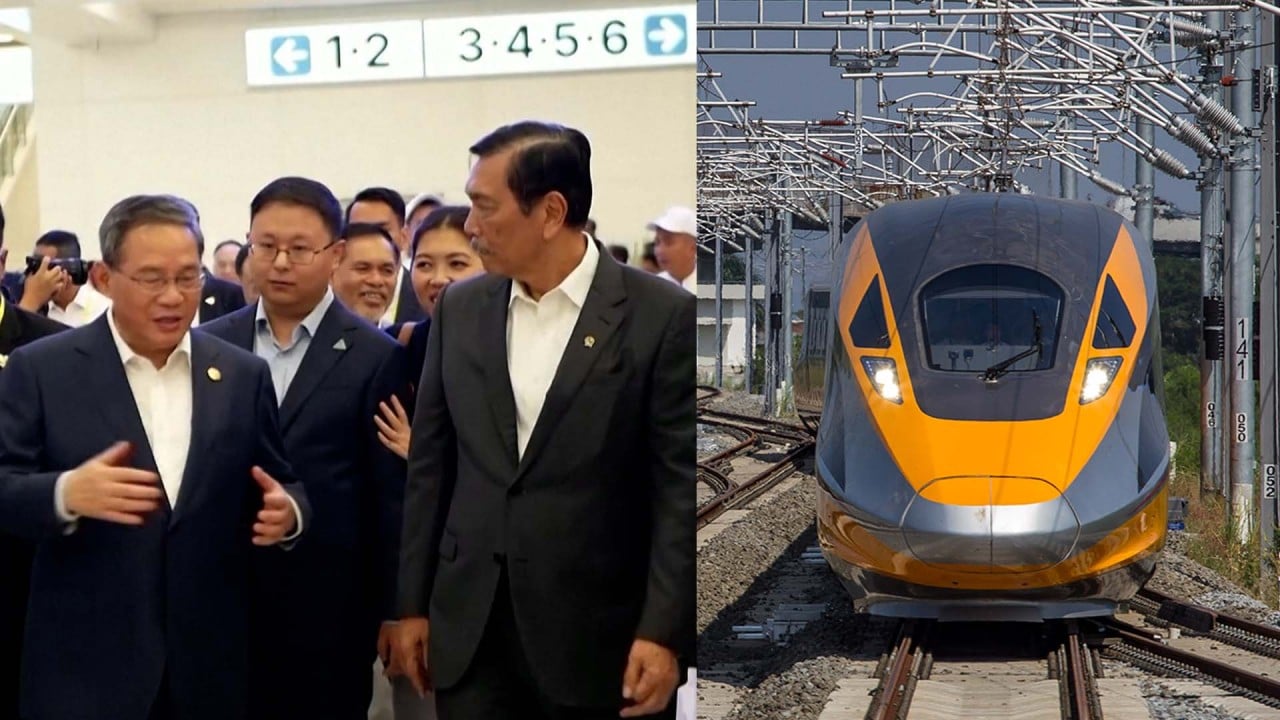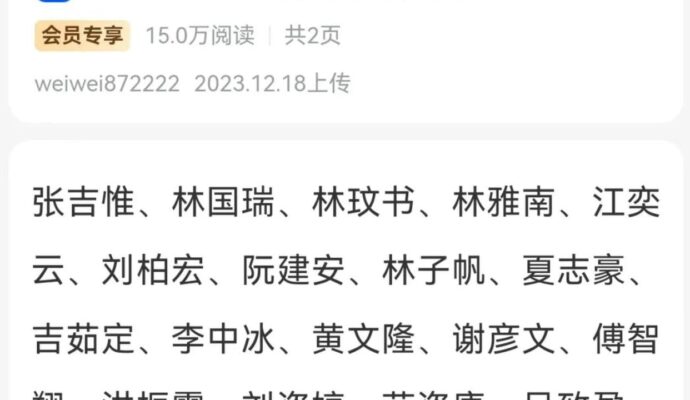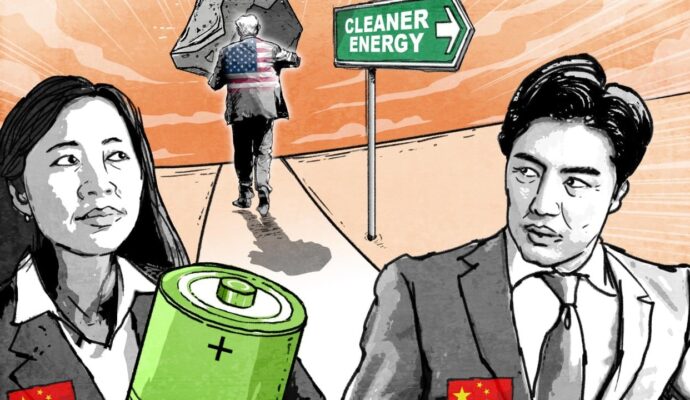The push for closer ties with Indonesia – a fellow Group of 20 country – comes as Beijing tries to strengthen partnerships in the region where its renewed South China Sea territorial claims have sparked tensions with several Asean members.
“China is willing to work with Indonesia to … further strengthen the alignment of development strategies, promote the common development of the two countries, and inject lasting impetus into regional stability and prosperity,” Li said, according to Xinhua.
Advertisement
He said China would support the building of Indonesia’s new capital in Nusantara and work closely on landmark projects under the Belt and Road Initiative.
These include the Jakarta-Bandung high-speed railway and the “Two Countries, Twin Parks” initiative, which has facilitated bilateral food supply through industrial parks.
China also agreed to expand imports of bulk commodities and high-quality agricultural and fishery products from Indonesia, encourage more Chinese investments in the country, and strengthen the digital economy, green development, health and people-to-people exchanges.
Widodo, who earlier welcomed Li to the presidential Merdeka Palace, highlighted the results of the comprehensive strategic partnership between the two countries, according to Chinese state media.
Advertisement
According to Xinhua, he said Indonesia appreciates China’s firm support for its role as Asean’s rotating chair and will adhere to the one-China principle.
“Indonesia … is willing to work with China to jointly promote regional cooperation and jointly maintain regional peace, stability and prosperity,” Widodo said.
Advertisement
Both leaders will travel to Indian capital New Delhi for the G20 summit opening on Saturday.
Zhao Haili, an associate professor of the Centre for Southeast Asian Studies at Xiamen University, said the economic cooperation between the two countries has reached an all-time high, but Indonesia’s geographic location and importance in the US-China rivalry is also a reason for Beijing to cultivate the relationship.
China has been Indonesia’s biggest trading partner since 2013, and contributed to a quarter of its total trade volume since 2021.
Advertisement
“Although its disputes with China on the issue are not as significant as those with Vietnam and the Philippines, Indonesia is a stakeholder in the South China Sea, ” he said, adding that China is also concerned about the Indonesian government’s cooperation with Washington.
Indonesia has long pursued a “non-alignment” policy and played a balancing act between Beijing and Washington, with which it enjoys close defence ties.
Indonesia’s South China Sea remarks show a ‘level up’ of support for claimants
Indonesia’s South China Sea remarks show a ‘level up’ of support for claimants
Widodo was the first foreign leader to pay an official visit to Beijing in July 2022 since China closed its borders in March 2020. He visited the country again last month during the World University Games in Chengdu, where he and Xi agreed on a special “dialogue mechanism” for the two countries’ foreign and defence ministers.
Advertisement
But last month he said he did not want to rush Indonesia into joining Brics after the group of developing nations, which Beijing is seen to be promoting as an alternative to the Group of 7, expanded to 11 members.
Radityo Dharmaputra, an international studies lecturer at Airlangga University in Java, said Indonesia was likely to continue to position itself between the US and China.
“With all the complaints regarding the Western-based global order, Indonesia still needs the West. We also need China, but not Russia, and definitely we don’t want to join a political ‘alliance’ or bloc like Brics,” he said.
Additional reporting by Zhao Ziwen
Advertisement




